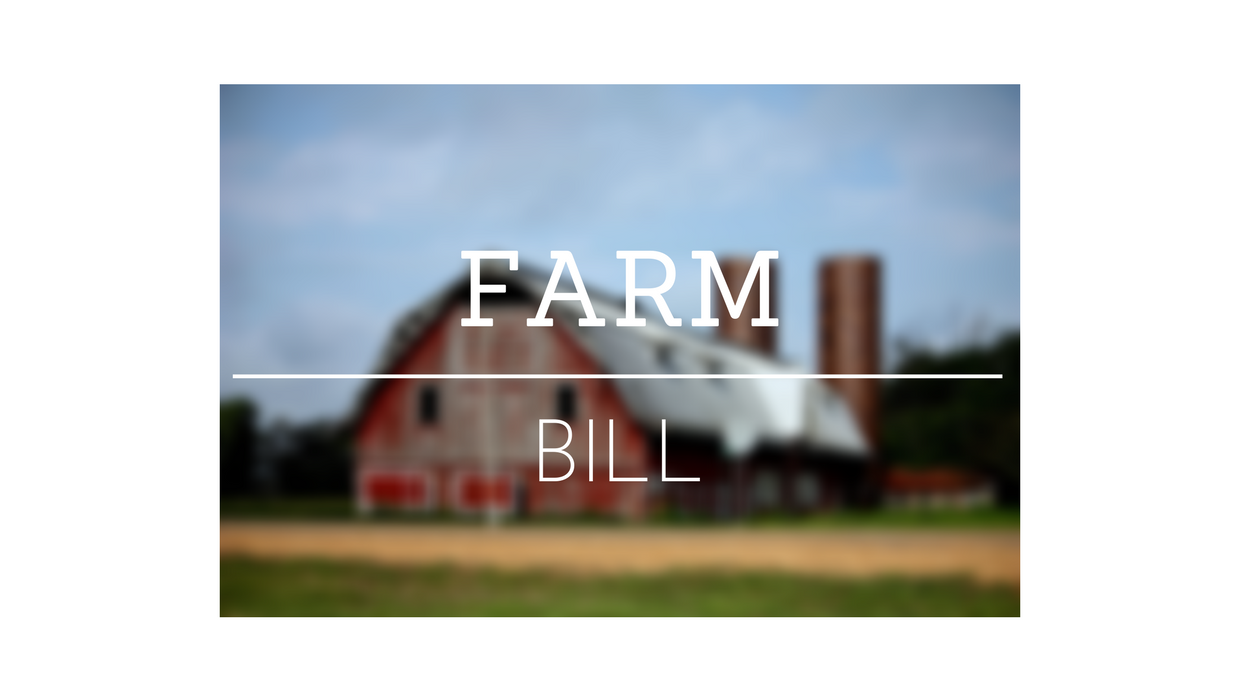Floor debate on the House farm bill entered its second day May 17, with several amendments debated under a cloud of uncertainty that the bill may not gain final passage due to conservative disagreements over immigration legislation.
Rep. Mark Meadows, R-NC, chairman of the House Freedom Caucus told Politico May 17 the caucus will not support the farm bill until after a vote is held on an immigration bill, which could kill any chances of the bill’s passage on time May 18.
House leadership and Freedom Caucus members have had several meetings, the Politico report said, trying to come to an agreement that would allow a vote on an immigration bill sponsored by former Agriculture Committee chairman and current House Judiciary Chairman Bob Goodlatte, R-VA, on the House floor in June if the Freedom Caucus backed the farm bill.
The Freedom Caucus nixed that idea, but House Majority Leader Kevin McCarthy told Politico he was not pulling the bill from the floor and were pressing on for final passage May 18.
Meadows said his group wanted nothing of that, according to Politico.
"The vast majority of our members believe we should have a vote on immigration before the farm bill," Meadows told Politico. "At this point, there’s not enough votes to pass the farm bill.”
The Freedom Caucus’s action is a near repeat performance of the last farm bill debate five years ago, when conservatives in 2012 attempted to divide the nutrition title from the rest of the farm bill. It caused a lengthy delay in passage of the farm bill, including a continuation of the 2008 farm bill.
The action by conservatives upset voters in the Kansas 1st District to the point where they removed the incumbent at the time, Rep. Tim Huelskamp, R-KS, and replaced him with Rep. Roger Marshall, R-KS, who supports the current bill.
With the Freedom Caucus dustup, the farm bill is likely on a related path to trouble this year, even though Republicans led by House Speaker Paul Ryan, R-WI, see the farm bill—with its inclusion of work requirements for recipients of Supplemental Nutrition Assistance Program payments—as a final flourish to his tax and social change agenda before he leaves office in January.
Even if the now long-shot House farm bill passes anytime soon, let alone when expected, it is considered dead on arrival in the Senate, where Agriculture Committee chairman Pat Roberts, R-KS, and ranking member Debbie Stabenow, D-MI, are preparing to markup their version of the bill, which won’t have the work requirements that have caused all House Democrats to say they won’t vote for the bill.
Despite the Freedom Caucus threat to scuttle the farm bill, the House forged ahead with the list of amendments that had been approved earlier in the week by the House Rules Committee.
The most controversial amendment, sponsored primarily by Rep. Virginia Foxx, R-NC, to remove domestic production limits and other market reforms in the sugar program, was rejected by a vote of 278-137. The rejection was seen as the clearing of the major hurdle toward passing the farm bill until Meadows made his statement.
It also was seen as perhaps the lone bit of bipartisanship displayed by House Agriculture Committee leadership during the week of farm bill debate, with both chairman Mike Conaway, R-TX, and ranking member Collin Peterson showing bonhomie in shared opposition to the Foxx amendment.
Other amendments, in their own way, offered support of certain programs. One amendment, primarily sponsored by Rep. Andy Biggs, R-AZ, that would have repealed the bioenergy subsidy programs established in title IX of the 2002 farm bill, was rejected 340–to-75.
The fate of about a dozen amendments still remain undecided as of the evening of May 17.
Then again, so is the fate of the farm bill as a whole, given the attitude of the Freedom Caucus.
Still, maintaining the positive outlook his administration has placed on the House farm bill, President Donald Trump encouraged passage in the evening of May 17 via Twitter.
Larry Dreiling can be reached at 785-628-1117 or [email protected].


